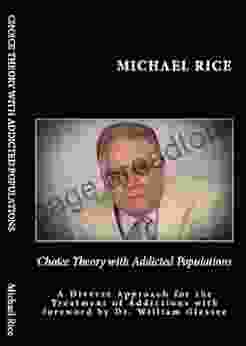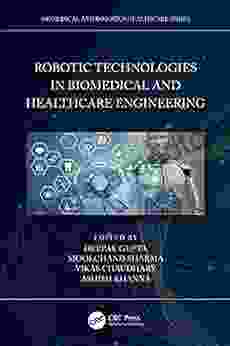Empowering Recovery: Exploring Choice Theory with Addicted Populations

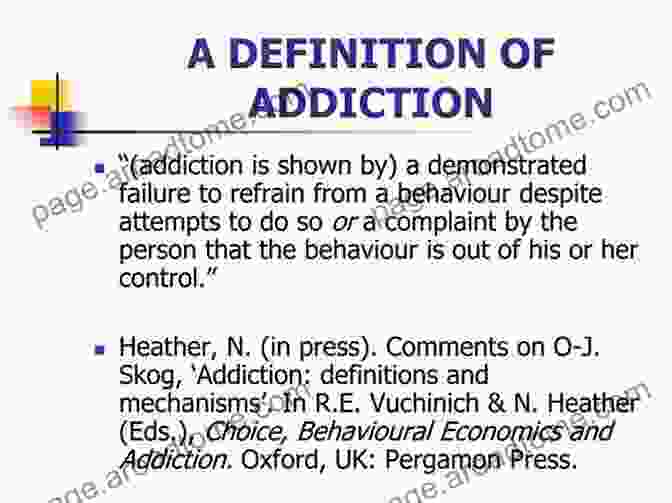
4.7 out of 5
| Language | : | English |
| File size | : | 349 KB |
| Text-to-Speech | : | Enabled |
| Screen Reader | : | Supported |
| Enhanced typesetting | : | Enabled |
| Word Wise | : | Enabled |
| Print length | : | 273 pages |
| Lending | : | Enabled |
Addiction, a complex and pervasive issue, has long been a challenge for individuals, families, and communities around the world. Traditional treatment approaches have often focused on external control and punishment, failing to fully address the underlying causes and motivations that drive addictive behaviors.
In this article, we explore Choice Theory, a revolutionary approach to addiction recovery developed by renowned psychiatrist William Glasser. Choice Theory challenges the traditional view of addiction as a disease and instead emphasizes the role of personal choice and responsibility in the recovery process.
Understanding Choice Theory
At the core of Choice Theory lies the belief that human beings are inherently motivated by five basic needs: survival, love and belonging, power, freedom, and fun.
- Survival: The need to ensure our physical and emotional well-being.
- Love and Belonging: The need for connection and intimacy with others.
- Power: The need to feel competent, influential, and in control.
- Freedom: The need to make our own choices and live life according to our values.
- Fun: The need to experience enjoyment and pleasure.
Choice Theory posits that when these needs are not met, individuals resort to unhealthy coping mechanisms, including addiction, to fulfill them.
Applying Choice Theory to Addiction Recovery
In addiction recovery, Choice Theory empowers individuals by:
- Promoting self-responsibility: Choice Theory emphasizes that addiction is a choice, albeit an unhealthy one. By recognizing this, individuals can take ownership of their actions and begin to make different choices.
- Fostering intrinsic motivation: Choice Theory focuses on helping individuals identify and pursue intrinsic motivators for recovery, such as improved relationships, enhanced self-esteem, and a sense of purpose.
- Addressing external control: Choice Theory challenges the belief that external factors, such as genetics or environmental triggers, are solely responsible for addiction. Instead, it empowers individuals to make choices that empower them over their own behaviors.
Techniques of Choice Theory in Addiction Recovery
Choice Theory offers a range of techniques that can be effectively incorporated into addiction recovery programs:
- Reality Therapy: A form of therapy that helps individuals examine their behaviors and make choices that are aligned with their values and goals. It also emphasizes the importance of taking responsibility for one's actions.
- Lead Management: A process of identifying individuals who can support and encourage recovery efforts, such as family members, peers, and counselors.
- Choice Boards: Visual representations of the choices available to individuals, which help them identify and make healthier choices in various situations.
Evidence for Choice Theory's Effectiveness
Numerous studies have demonstrated the effectiveness of Choice Theory in addiction recovery. Research has shown that Choice Theory-based interventions:
- Increased treatment completion rates: Individuals who participate in Choice Theory programs are more likely to complete treatment and remain sober.
- Improved relapse prevention: Choice Theory helps individuals develop coping mechanisms and strategies for preventing future relapses.
- Enhanced self-esteem and motivation: Choice Theory empowers individuals to make positive choices for themselves, leading to increased self-esteem and intrinsic motivation.
Choice Theory provides a transformative approach to addiction recovery that empowers individuals to take responsibility for their choices and pursue long-lasting recovery.
By understanding the principles of Choice Theory and applying its techniques, addiction counselors and recovery programs can effectively address the underlying motivations for addiction and foster a path of empowerment and healing for those struggling with this complex condition.
If you or someone you know is grappling with addiction, Choice Theory offers a beacon of hope and a roadmap towards a life of freedom and fulfillment.
4.7 out of 5
| Language | : | English |
| File size | : | 349 KB |
| Text-to-Speech | : | Enabled |
| Screen Reader | : | Supported |
| Enhanced typesetting | : | Enabled |
| Word Wise | : | Enabled |
| Print length | : | 273 pages |
| Lending | : | Enabled |
Do you want to contribute by writing guest posts on this blog?
Please contact us and send us a resume of previous articles that you have written.
 Book
Book Novel
Novel Page
Page Chapter
Chapter Text
Text Story
Story Genre
Genre Reader
Reader Library
Library Paperback
Paperback E-book
E-book Magazine
Magazine Newspaper
Newspaper Paragraph
Paragraph Sentence
Sentence Bookmark
Bookmark Shelf
Shelf Glossary
Glossary Bibliography
Bibliography Foreword
Foreword Preface
Preface Synopsis
Synopsis Annotation
Annotation Footnote
Footnote Manuscript
Manuscript Scroll
Scroll Codex
Codex Tome
Tome Bestseller
Bestseller Classics
Classics Library card
Library card Narrative
Narrative Biography
Biography Autobiography
Autobiography Memoir
Memoir Reference
Reference Encyclopedia
Encyclopedia Patrick J Fox
Patrick J Fox David P Sortino
David P Sortino Venki Ramakrishnan
Venki Ramakrishnan Peter Bengelsdorf
Peter Bengelsdorf Rachel Herz
Rachel Herz Ruth Taylor
Ruth Taylor Padma Venkatraman
Padma Venkatraman Sandra Morgen
Sandra Morgen Paul Miller
Paul Miller Paul Laverty
Paul Laverty Tracey L Reid
Tracey L Reid Piper Weiss
Piper Weiss Olivia Jaras
Olivia Jaras Randy R Bruegman
Randy R Bruegman Vladimir Leskovac
Vladimir Leskovac Susan E Ingebretson
Susan E Ingebretson Williamson Murray
Williamson Murray Paul Freiberger
Paul Freiberger Paul E Sax
Paul E Sax Pierre Court
Pierre Court
Light bulbAdvertise smarter! Our strategic ad space ensures maximum exposure. Reserve your spot today!
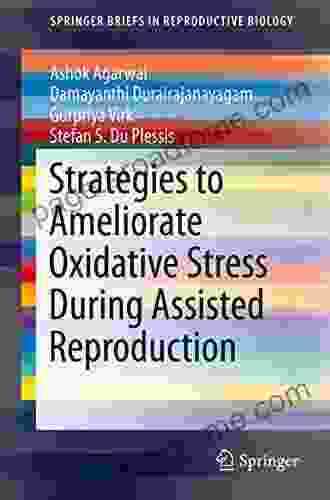
 Russell MitchellEmpowering Healthcare Professionals: Unlocking Strategies to Ameliorate...
Russell MitchellEmpowering Healthcare Professionals: Unlocking Strategies to Ameliorate...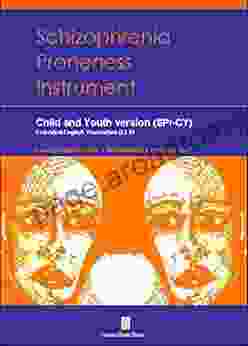
 Neil ParkerSchizophrenia Proneness Instrument Child and Youth (SPI-CY) Extended English:...
Neil ParkerSchizophrenia Proneness Instrument Child and Youth (SPI-CY) Extended English:...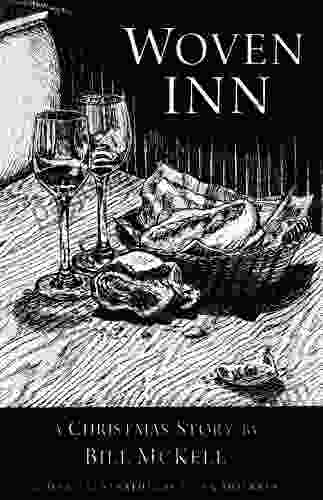
 Christopher WoodsWoven Inn by Peter French: A Masterpiece of Intricate Detail and Immersive...
Christopher WoodsWoven Inn by Peter French: A Masterpiece of Intricate Detail and Immersive... Ivan CoxFollow ·16.5k
Ivan CoxFollow ·16.5k W. Somerset MaughamFollow ·16.9k
W. Somerset MaughamFollow ·16.9k Julian PowellFollow ·14.5k
Julian PowellFollow ·14.5k Wesley ReedFollow ·6k
Wesley ReedFollow ·6k Ernest J. GainesFollow ·12.9k
Ernest J. GainesFollow ·12.9k Cruz SimmonsFollow ·10.6k
Cruz SimmonsFollow ·10.6k Dan BellFollow ·18.1k
Dan BellFollow ·18.1k Graham BlairFollow ·16k
Graham BlairFollow ·16k
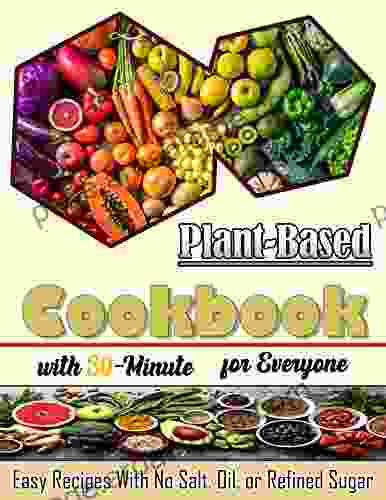
 W. Somerset Maugham
W. Somerset MaughamNourishing Delights: Easy Recipes Without Salt, Oil, or...
Are you looking for...

 Zachary Cox
Zachary CoxThe Art of Kitchen Fitting: A Masterful Guide to Culinary...
The kitchen, the heart of...
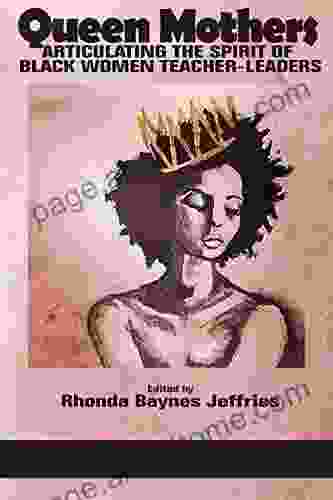
 Elliott Carter
Elliott CarterArticulating the Spirit of Black Women Teacher Leaders:...
In the tapestry of education,...

 James Gray
James GrayThe Complete Guide to Arduino: Your Journey to...
: Unveiling the...
4.7 out of 5
| Language | : | English |
| File size | : | 349 KB |
| Text-to-Speech | : | Enabled |
| Screen Reader | : | Supported |
| Enhanced typesetting | : | Enabled |
| Word Wise | : | Enabled |
| Print length | : | 273 pages |
| Lending | : | Enabled |


